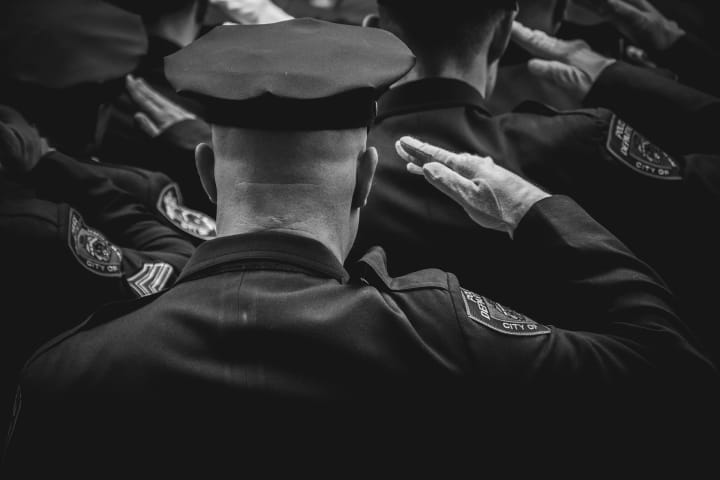5 Tips for Playing Better Cavaliers
A 'Pathfinder' RPG Guide

The only thing more dangerous on the battlefield than a skilled warrior is a skilled warrior who believes in something. And when that warrior is willing to back their sword arm with conviction that will keep them and their allies fighting long past the point of sense, battles that looked like certain defeats may become victories.
That is the power of the cavalier, a figure of martial might, but also one who can inspire allies to fight with everything they've got in the face of the enemy. But if you've found yourself backed into a corner when it comes to playing a cavalier, then you might find some of the following tips helpful when it comes to stepping outside the box.
You can find the full list at the 5 Tips Master List on my gaming blog Improved Initiative. And you can find more content like this in my full Vocal archive as well!
Tip #1: Who is Your Mount?

Remember, you have options.
While cavaliers can be useful in social situations, and they can be dangerous on foot, they are at their deadliest in the saddle. They're also one of a select few classes who gets an animal companion that levels up with them, ensuring that your mount is by your side for the long haul. Since so much of your character functionality is about how you and your mount work together, it bears asking who your mount is and what your relationship to said mount has been over your career.
For example, if you're a small-sized cavalier, do you ride a wolf who you found you wounded in the forest, and which you cared for as a pup? If you're an older cavalier with a younger horse, is this horse the latest in a long family line that you've fought with? Or if you have a more unusual mount, how did you acquire it? If you ride a long-lived mount, are you its third or fourth warrior? Or if you come from a place where horses are not common (such as high mountains where large goats may be more sure-footed, or thick jungles where true warriors ride on the backs of huge tigers) then you should ask what traditions, rituals, etc., you went through to acquire your mount.
And if you take the trait Blood Steed, definitely ask what sort of spiritual connection you have with your mount, because that's going to come up in the event you resurrect them after they die.
Tip #2: What is Your Order?

I solemnly swear to uphold the tenants, lest I be stripped of my class features...
At first level, a cavalier joins an order. This order grants you skill bonuses, determines what your Challenge ability does, and is a central fixture of what your cavalier believes in, as well as what they fight for. However, your order can take on a variety of different forms.
For example, is your order a physical organization like the Knights Templar? Does your order have an agenda, giving your cavalier an entity whose goals they are working toward, and who might give them missions to follow throughout the campaign? Or is your order more of an ideal that you can draw strength from even if you said your vows alone, and took them on an old sword you inherited from your grandfather?
Your order should be more than a thing you occasionally mention in your battle cry; it should be a central, shaping part of your character. So ask what colors you wear to identify yourself, ask how you're viewed as a member, what your standing is, and make this central part of your class an equally central part of your character.
And if you need some inspiration for this aspect of your character, consider the following:
- 100 Knightly Orders: From noble warriors atop fiery destriers, to solemn figures in silent, black armor, this list contains a variety of orders that could easily act as the basis for cavaliers with a more traditional bent.
- 100 Random Mercenary Companies: Not all cavaliers are beacons of chivalry. From the Order of The Cockatrice to the organized battle of the Order of The Dragon, it would not be uncommon to find these cavaliers acting as battle captains within high-priced mercenary companies like those listed here.
- 100 Secret Societies: Some cavaliers perform their tasks quietly, serving the interests of less well-known masters. From preserving the knowledge of ancient libraries, to defending fellow members of the order on the road, this supplement is ideal for those who want to be a little more inconspicuous about who they serve.
Tip #3: What Would Make You Leave Your Order?

You never really take off the uniform.
Once your order is a fully-fleshed entity, you need to ask what role it's played in your cavalier's life, and what their attitudes are toward it. For example, are they the sort of cavalier who still irons their banner and polishes their badges, wanting to look parade ready? Or do they feel that while the order's goals are noble, and worth fighting for, that their actions are often misguided? Are they loyal to their order above all else, or do they hold something else above that cause? Were they a soldier without a cause, given purpose? Were they a troubled kid given structure and direction? Or were they groomed from a young age to take over a family member's place in the order?
Also, as I said back in 5 Tips For Playing Better Paladins, ask yourself what would make your cavalier compromise their order's vows. Then ask why your cavalier might leave their order. Once you know these things, you will know more about them as characters, and you'll understand what things would tempt them. As we saw with Gawain and Lancelot, a knight who is never tempted is one who tends not to be all that interesting.
Tip #4: Why (And How) Do You Fight?

If you don't believe in something, you never get up again.
Cavaliers are consummate warriors, but different orders emphasize different skill sets and options. For example, does your cavalier see themselves more as a diplomat, fighting with words over steel whenever possible? Do they embody the raw power of the charge? Do they value honorable single combat, or do they win by whatever means necessary using every option they have to hand? How a cavalier thinks about achieving their goals, and their preferred methods, can say a lot about them as characters.
The other important question is to understand why your cavalier fights. Some of this will be in the order they join, but not all of it, which is why it's worth having a think about. For example, does your cavalier fight to shower themselves in glory? Do they use the noble cause of the order as an excuse for violent tendencies? Do they fight to protect others? Or is every battle to prove to themselves that they're not afraid? There is a lot of potential in finding an answer for this question, and it can play into some solid character development arcs.
Tip #5: Where Do They Fulfill Their Duties?

The world is full of opportunities.
While adventurers often travel far from home, this is a particularly unique opportunity for cavaliers. Because when you have a mount, that mount tends to be geared toward certain environments. But if you're going far outside your usual bivouac, that can lead to a lot of fish-out-of-water opportunities.
As an example, a desert cavalier who has gone far from home might find themselves as well as their camel out-of-sorts. Alternatively, a cavalier might be more like Frank Hopkins in Hidalgo, riding the same horse across a dozen different types of terrain. Some cavaliers may never have been more than a day's ride from their home, while others will cross entire maps to fight for their cause.
This becomes important because it makes you ask not just what is important to your cavalier, but where is it important? Fighting for the rights of the downtrodden is a noble goal, but will they ride across the countryside to enforce that edict? Or do they stay at home, watching to be sure that those closest to them are protected? In either case, what does it say about this character and how they view the world around them? Are they always looking toward the next horizon, or do they view all those miles with trepidation, preferring to stay near to what they might think of as their part of the cause?
About the Creator
Neal Litherland
Neal Litherland is an author, freelance blogger, and RPG designer. A regular on the Chicago convention circuit, he works in a variety of genres.
Blog: Improved Initiative and The Literary Mercenary






Comments
There are no comments for this story
Be the first to respond and start the conversation.